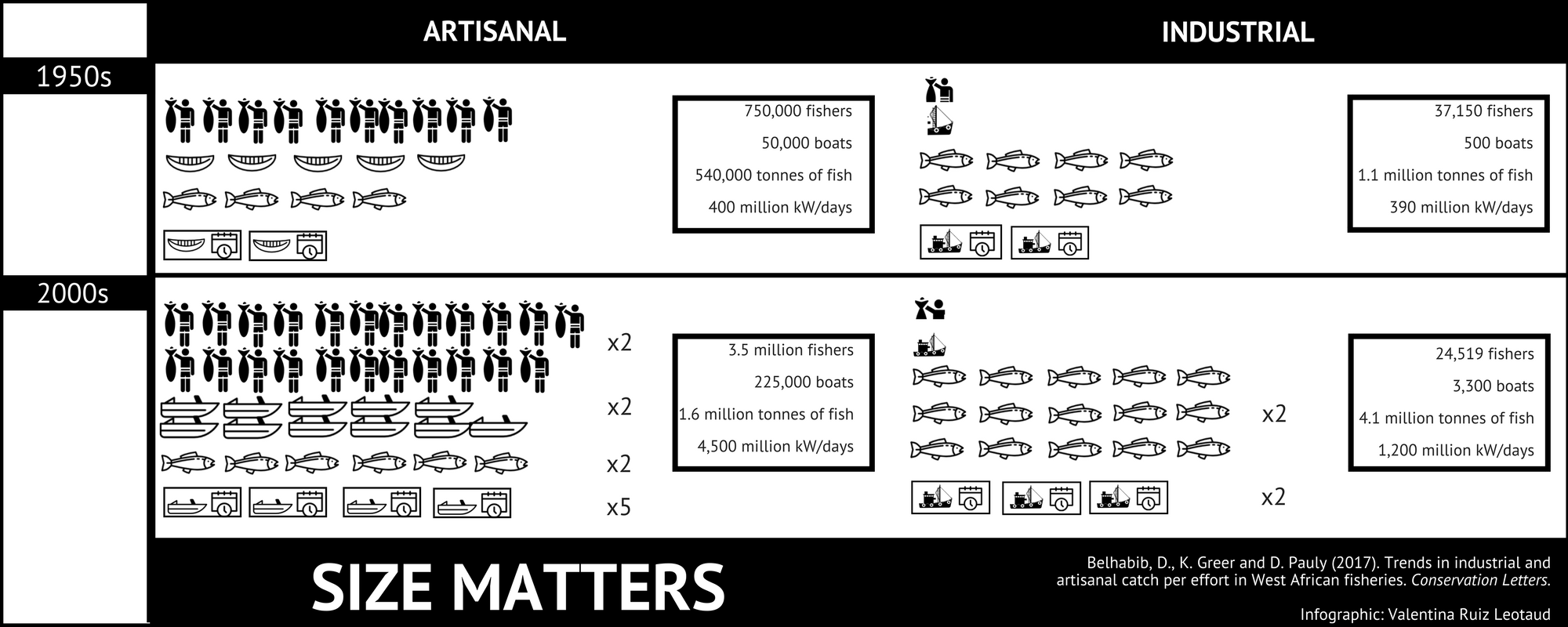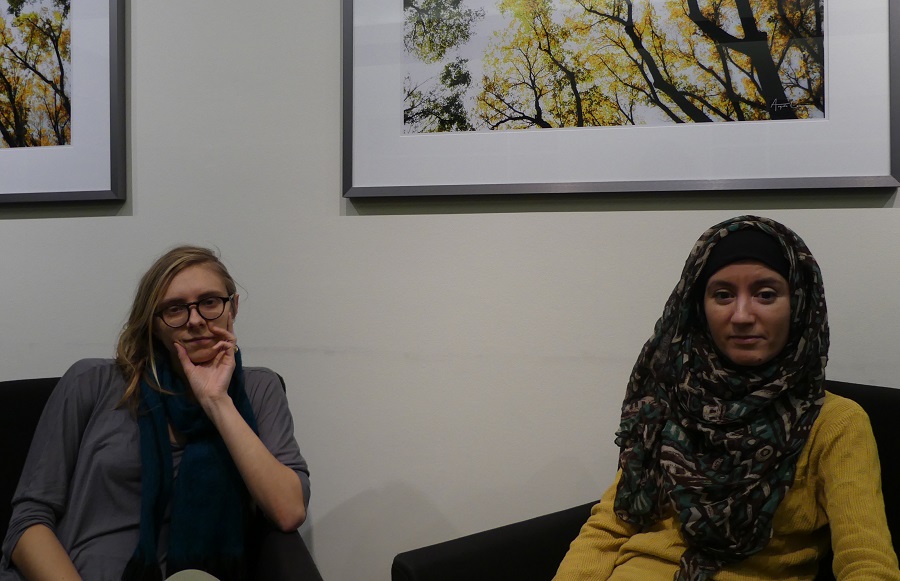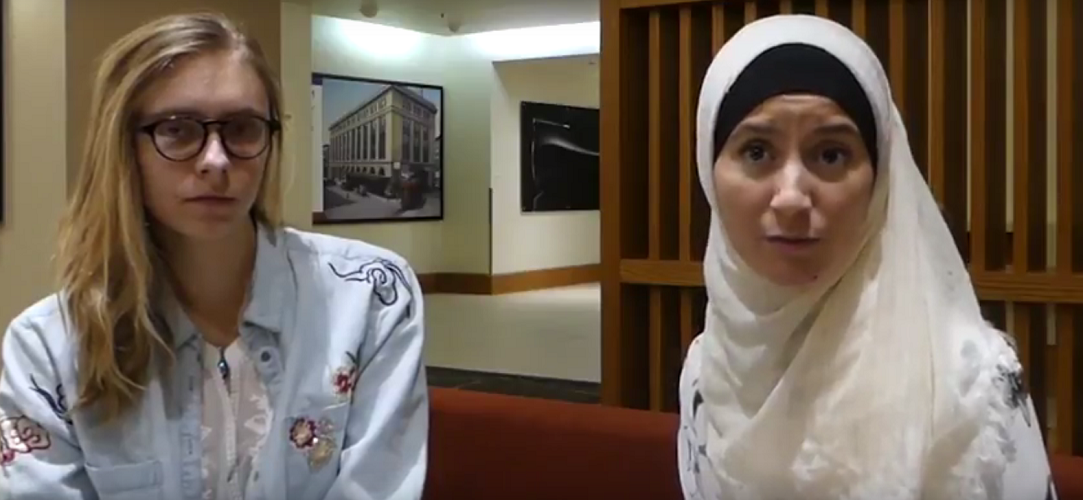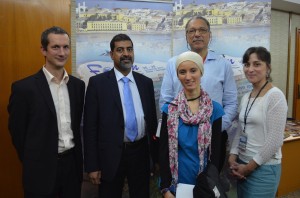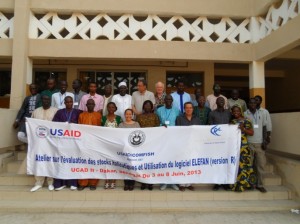
During June, Deng Palomares and Daniel Pauly spent a week teaching a newly updated version of the ELEFAN software at the Institute for Fisheries and Aquaculture of the University Cheick Anta Diop of Dakar, Senegal. (Photo: Najih Lazar)
by M.L. ‘Deng’ Palomares and Daniel Pauly
The ELEFAN software and approach for the estimation of von Bertalanffy growth parameters from length-frequency data was developed at the International Center for Living Aquatic Resources Management (ICLARM), in Manila, Philippines, in the early 1980s by Daniel Pauly and two programmers (Noel David and Felimon Gayanilo). It was disseminated in various versions throughout the world, especially in tropical countries, through a series of training courses during the 1980s and 1990s. It also formed the core of a comprehensive software package called FAO-ICLARM Stock Assessment Tools (FiSAT; [1], [2]), still available from the FAO.
Overall, about 5,500 papers based on the ELEFAN approach, as incorporated in FiSAT and its predecessors have been published in the past 30+ years (as identified by Google Scholar records with “ELEFAN” in the title or the body of the text). However, since its release, FiSAT has been updated only once (FiSAT II; [3]), and it has become outdated in content and form. Thus, the offer was accepted to collaborate with USAID’s COMFISH Project in Senegal to produce an updated version of ELEFAN and to test it in a training course in Dakar before releasing it for wider use as open-source software.
The bulk of the R coding was completed by Aaron Greenberg (with Mathieu Colléter also contributing a routine) just in time for a team consisting of Ted Hart (of UBC’s Biodiversity Research Centre), Danielle Knip and Deng Palomares (of the Sea Around Us Project) to create a stand-alone package copied on 25 USB sticks at the end of May.
Daniel Pauly and Deng Palomares then spent a week in an ELEFAN training course, held at the Institute for Fisheries and Aquaculture of the University Cheick Anta Diop of Dakar, teaching the routines behind and the functioning of the ELEFAN package. The group of 25 Senegalese participants consisted of about one-half fisheries scientists and graduate students, and the other half of fisheries inspectors.
While the fisheries inspectors struggled somewhat with the relevance of growth and mortality estimations and clearly preferred Daniel’s lectures on fisheries and climate change issues, the students and scientists benefitted greatly from this training workshop and generated – with Deng’s help – results for sardinella (Sardinella aurita, S. maderensi), white grouper or thiof (Epinephelus aeneus), bonga (Ethmalosa fimbriata) and other species. The results – to our relief – were comparable to those obtained by a group of colleagues (also working for the COMFISH Project) through tedious reading of annual rings on bony structures. Indeed, in the case of octopus (where the cubic root of the weight was used instead of length), results were obtained which could not have been obtained though ageing of bony structures – octopi
have no bones…
Thus, overall, the personnel who had arranged the workshop, notably COMFISH Project Leader Chris Mathews and Najih Lazar, Technical Advisor, both of The University of Rhode Island, were as pleased as we were about both the knowledge that was passed on during the workshop and the performance of the trial version of ELEFAN in R. Obviously, a number of items were noted which require improvement, as well as a swarm of bugs, both of which are due to be fixed in the next two to three months. The high hopes that we have for this new release of ELEFAN in R appear justified.
Daniel used the opportunity of being in Senegal to visit the Département des Pêches Maritimes, where he briefed its Director, Mr. J.-P. Manel, and members of his senior staff on the results of the reconstruction of Senegalese marine catches led by Dyhia Belhabib, with support from the MAVA Foundation and co-authors from the COMFISH project (Ms. Vivianne Koutob), the DPM (Mr. Lamine Mbaye) and WWF-Senegal (Mr. Nassirou Gueye). It was very gratifying that our Senegalese partners acknowledged that they have catch-reporting problems, both with regards to substantial illegal fishing in Senegalese waters and unregulated fishing by Senegalese fishers in the waters of neighbouring countries. This acceptance of reality signifies a level of political maturity that is lacking in many other countries where officialdom prefers to stick its head in the sand.
Daniel also used the opportunity, shortly before leaving Dakar, to hold a press conference with a dozen Senegalese journalists to inform them of a recent study authored by Drs William Cheung, Reg Watson and himself, on global warming and fisheries, which implies a dire future for tropical fisheries. One of the workshop participants suggested to Daniel that the public should be “alerted, but not alarmed” by the trend that this paper describes and the implication for Senegalese fisheries. This point to alert people and not alarm them is an excellent formulation of our job as scientists, and luckily, the Senegalese journalists followed up on it. For those who speak French, you can verify that the Senegalese journalists got the point by reading this article published in Le Soleil Online (www.lesoleil.sn), as an example.
Daniel can also attest that Deng was a big success with the national dress that she was given by the participants (see picture, right)!
References
[1] Gayanilo FC, Sparre P and Pauly D (1996) FAO-ICLARM stock assessment tools (FiSAT). User’s guide. FAO Computerized Information Series No. 8. FAO, Rome. 126 p.
[2] Gayanilo FC and Pauly D (1997) FAO-ICLARM stock assessment tools: reference manual. FAO Computerized Information Series No. 8. FAO, Rome. x+262 p.
[3] Gayanilo FC, Sparre P and Pauly D (2005) FAO-ICLARM stock assessment tools II (FiSAT II). Revised version. User’s guide. FAO Computerized Information Series No. 8. FAO, Rome. vii+168 p.
Correction: This is an updated version of the original article, correcting erroneous affiliations.


